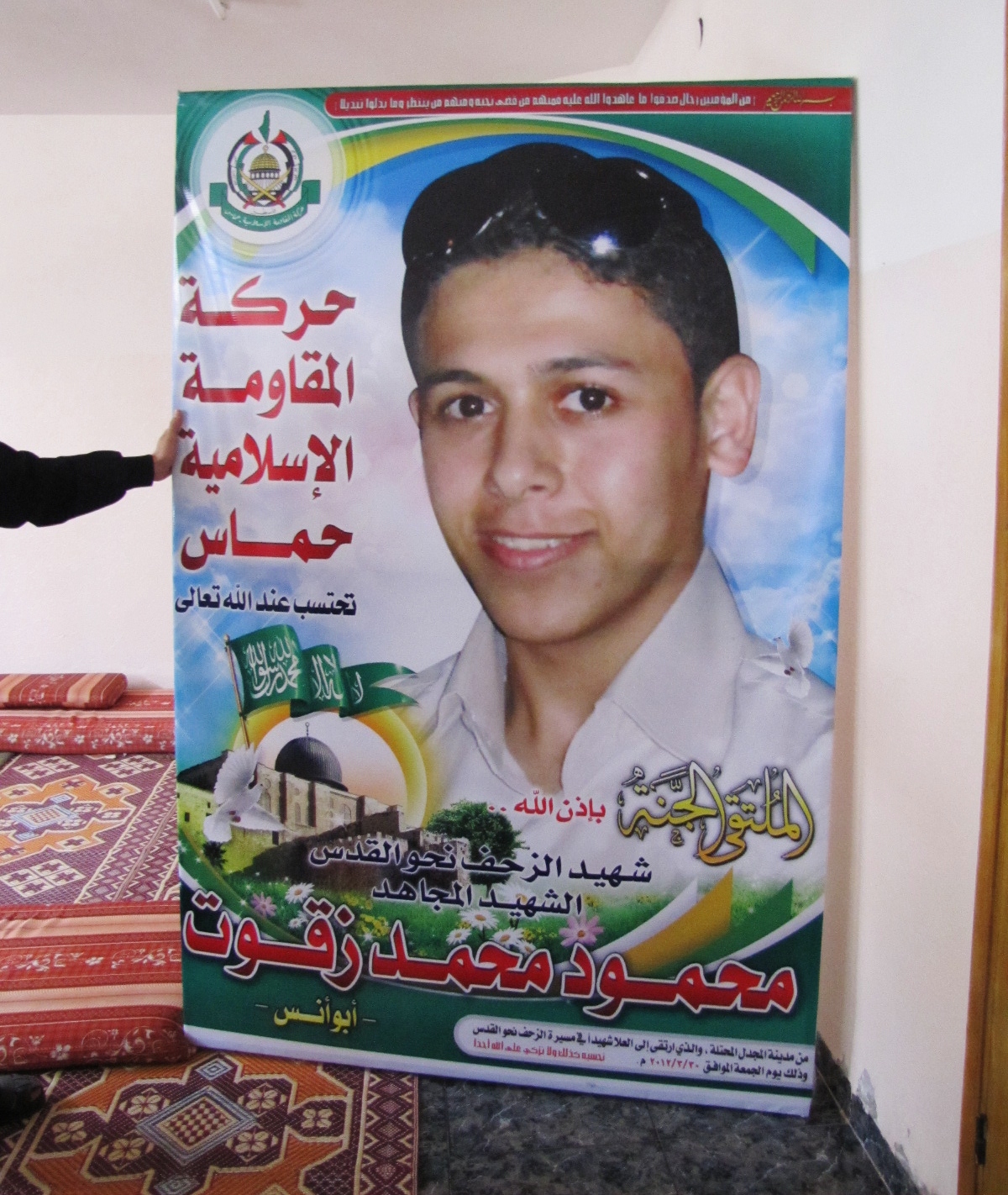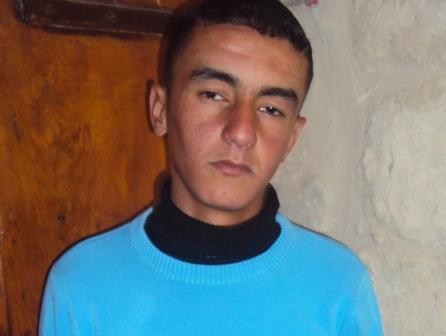Category: In the Media
-
Mahmoud, 19 years old, killed at Erez during Land Day between dreams and hopes: The words of his family
by Rosa Schiano 11 April 2012 | il Blog di Oliva On Friday 30th March, during the “Land Day,” Gaza joined the Global March in order to remember the confiscation of Palestinian lands by Israel which were protested against on the 30th March 1976. 6 Palestinians were killed and hundreds were injured. In Gaza this…
-
Palestinian woman seriously injured in settlers’ attack
11 April 2012 | The Palestinian Information Center AL-KHALIL, (PIC)– A Palestinian woman was hospitalized with serious injuries in her head after a group of Jewish settlers attacked her near Yatta village, south of Al-Khalil. An eyewitness said that 40-year-old Samiha Nawaja was attacked by a group of masked Jewish settlers from the nearby settlement…
-
Voices from the Occupation: Izat J. – settler/soldier violence/detention
11 April 2012 | Defence for Children International Name: Izat J. Date of Incident: 10 March 2012 Age: 16 Location: Hebron, occupied West Bank Nature of Incident: Settler/soldier violence/detention On 10 March 2012, a 16-year-old boy from Hebron is attacked by an Israeli border policeman and then detained at Kiryat Arba’s police station after his…


